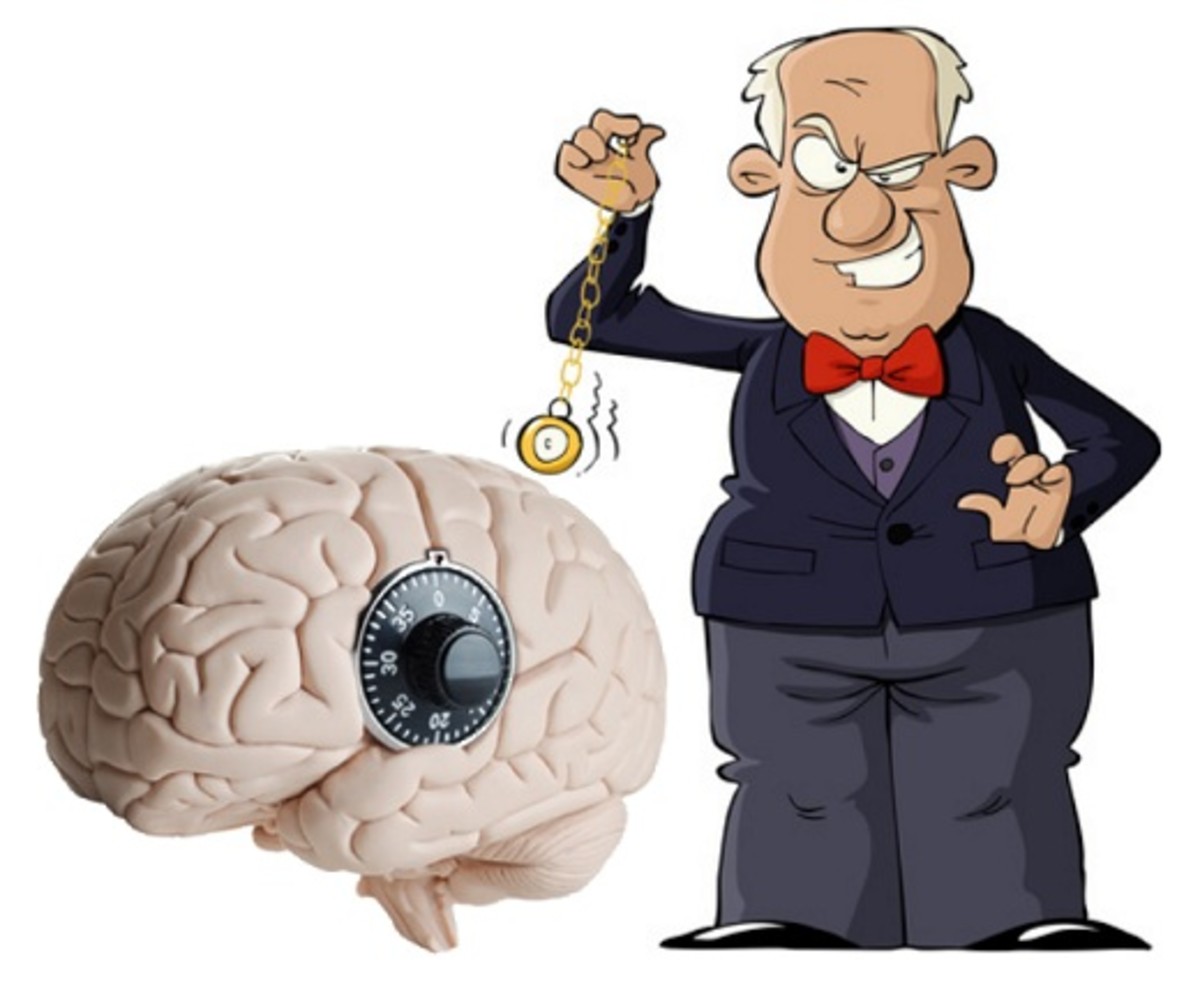Self Hypnosis Insomnia Relief
Many people are discovering the benefits of using self-hypnosis for insomnia relief. This article takes a look at how self-hypnosis can help the sleep-deprived.
What Is Insomnia?
Insomnia is a condition where a person has difficulty falling asleep, or remaining asleep. It can be a symptom of other sleep-related disorders, and usually leads to (often severely) impaired physical and/or mental functioning during the day, as a result of lack of sleep. Causes of insomnia are very varied – some cases are related to physical causes, such as hormonal imbalance, problems with the part of the brain that controls the sleep cycle, or taking certain medications, whereas others may be related to life circumstances such as stressful situations at work or home, or environmental disturbances such as loud noises. Insomnia may also be temporary, or it may be an ongoing condition that persists for months or years at a time. Insomnia is also more common in women in men, and tends to be more prevalent in older people also.
What Is Self-Hypnosis?
Hypnosis uses the power of suggestion to induce a mental (hypnotic) state in which the person being hypnotised becomes susceptible to the suggestions and instructions given by the hypnotist. In this trance-like state, you're more likely to internalise these suggestions, and suggestions that are directed towards making changes in your psychological or physical state are more likely to be beneficial. With self-hypnosis, a hypnotist or hypnotherapist isn't present; instead you use auto-suggestion, often in the form of a recording. You can make your own self-hypnosis recordings, perhaps following a script, or you can buy professionally recorded CDs or MP3s, in which a hypnotherapist gives an induction (trance-inducing preliminary section), followed by suggestions appropriate to the condition you're using self-hypnosis to address. Although there are exceptions, self-hypnosis typically takes time to achieve results, and you'll normally need to practice it on a regular basis for a few weeks or longer.

Using Self-Hypnosis For Insomnia
Insomnia is often treated with sedatives such as sleeping tablets, and other medications. These can be effective, but may have undesirable side effects, and many people don't like to be dependent on medication. Other solutions for insomnia include various form of therapy, such as cognitive and behavioural therapy, or natural remedies such as sedative herbs. Again, these can be effective, but don't work for everyone.
Many insomniacs wishing to take their condition into their own hands have had success with self-hypnosis. Insomnia that is primarily rooted in psychological disturbances such as anxiety can be especially responsive to hypnotic suggestion.
If you're new to self-hypnosis, using a recording is generally the most effective way to begin, although it's important to choose a high quality source. With practice you'll find it easier to induce and maintain a hypnotic trance without any external aid, but this is difficult for most novices. A self-hypnosis session for insomnia typically starts with deep physical relaxation, followed by hypnotic induction, and then the suggestions, after which the recording will bring you out of hypnosis in a gentle manner. Post-hypnotic suggestions will also be included. A session may typically last for around 20-30 minutes.
As mentioned earlier, it is rare for a problem to be solved with self-hypnosis straight away – typically you'll need to practice it consistently for a while to achieve lasting results. However, you might notice rapid improvements, especially if you perform your session just before going to bed, and the deep state of relaxation fostered by self-hypnosis can in itself help to induce a sleepy state.
While self-hypnosis insomnia treatment is generally very safe, and can be an effective way to counteract sleeplessness for many people, it isn't always the best solution, and if you have persistent insomnia, you should consult your doctor first, to rule out any potentially serious causes. You might also wish to consult a professional hypnotherapist for more guidance.
Self-Hypnosis / Insomnia Resources
There are many self-hypnosis insomnia solutions available online, usually in the form of CDs or MP3 downloads. While it's best to stick with programs from professional hypnotherapists, even these aren't all are of equal quality, so it's always a good idea to check for objective reviews before buying any self-hypnosis recording for insomnia.
More On Self-Hypnosis & Related Topics
- Buying & Using A Weight Loss Hypnosis CD
Are you thinking about using a weight loss hypnosis CD to get your weight under control? This may be a great decision, as hypnosis has helped many people to establish healthy eating and exercise habits, and... - What Is Brainwave Entrainment Technology?
Would you like to be able to tap into the true power of your mind, and explore different states of consciousness at will? Or perhaps you just want to be able to function at an optimal level to sleep well,... - Theta Meditation Benefits & Methods
If you're looking for a good quality theta meditation recording, you might like the one from The Unexplainable Store, which I use and recommend (it's in the 'Meditation' section under the 'Spiritual and... - Isochronic Tones - What Are They & What Can They Do For You?
Did you know that isochronic tones may be able to help you sleep better, improve your memory, be more creative, or reduce anxiety? Or if your interests are a little more esoteric, that they may also help you... - Meditation Chairs - Choosing A Chair For Meditating
Meditation chairs are becoming increasingly popular among people who like to meditate regularly. Although traditionally associated only with 'fringe' interests and people such as yogis, hippies and...







